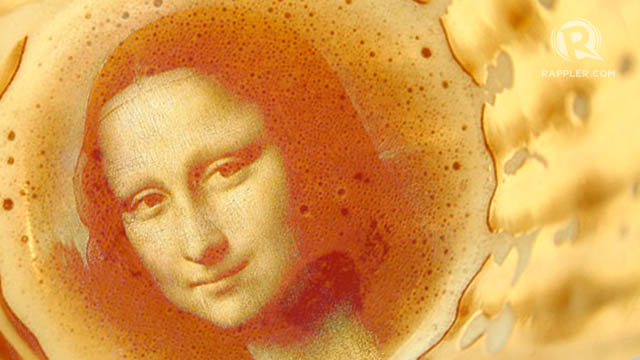SUMMARY
This is AI generated summarization, which may have errors. For context, always refer to the full article.
 Every year around this time, for 23 years now, science makes an appearance in a form that reminds us that science is not immune to fun and laughter. The awarding of the Ig Nobel prizes for science that “first makes us laugh and then makes us think” took place last September 12, 2013 at Sanders Theatre at Harvard University, and the winners ranged from science that studied the effects of opera music on mice patients with heart problems to techniques to reattach the mutilated penises of “wayward” men.
Every year around this time, for 23 years now, science makes an appearance in a form that reminds us that science is not immune to fun and laughter. The awarding of the Ig Nobel prizes for science that “first makes us laugh and then makes us think” took place last September 12, 2013 at Sanders Theatre at Harvard University, and the winners ranged from science that studied the effects of opera music on mice patients with heart problems to techniques to reattach the mutilated penises of “wayward” men.
The Ig Nobel prize for public health went to Kasian Bhanganada, Tu Chayavatana, Chumporn Pongnumkul, Anunt Tonmukayakul, Piyasakol Sakolsatayadorn, Krit Komaratal, and Henry Wilde for making the basic technique of penile re-attachment doable in general hospitals.
Apparently, this kind of damage to penises has reached epidemic proportions in Thailand triggered by wives furious over the unfaithfulness of their husbands. Filipino men who engage in the same and meet the same fate should not be envious since science is not a secret and this procedure should also be available to them should the need arise.
Apart from broken genitals, should you also need to replace your broken heart, another Ig Nobel award might be the answer. If you were a mouse who needed a heart transplant and wondering if opera music could help you during the delicate procedure, scientists namely, Masateru Uchiyama, Xiangyuan Jin, Qi Zhang, Toshihito Hirai, Atsushi Amano, Hisashi Bashuda and Masanori Niimi did a study that won them the Ig Nobel for Medicine.
They found out that opera music, specifically La Traviata, could help you cope with having a new heart. It is not yet known why such a deeply-moving music for humans would resonate with a mouse’s heart when I know men who still could not wrap their brains around musicals.
But with matters concerning beer, am sure most men could relate. For the Ig Nobel Prize for Psychology, once again, science confirms the common observation that when people think they are drunk, they also think they look pretty “hot.”

Aptly entitled, Beauty is in the Eye of the Beer Holder, scientists Laurent Bègue, Brad Bushman, Oulmann Zerhouni, Baptiste Subra, and Medhi Ourabah put it to the test. Now, when you witness this for yourselves in bars or videoke joints and get annoyed by people whose alcohol intake seems to have largely inflated their self-perception, you know that science has been there too and done that.
In fact, science has even invaded your vegetables – particularly the onion to see what is it exactly that causes us to tear up when we are slicing them. Apparently, the tear-jerking powers of the onion have been mistakenly attributed to the wrong enzyme. Scientists who won the Ig Nobel for chemistry has now identified the right chemical and they think it would enable us to make onions that will not make us cry.
No patent has been filed for the tear-jerking enzyme but for sure, the Ig Nobel for Safety and Engineering went to a patent holder, the late Gustano Pizzo of New York, who devised a trapdoor that catches the hijacker in a capsule that later drops in a parachute to the ground, presumably to already waiting authorities. This would have been so useful to the hijacker of a local plane a few years back as he would not have had to rely on the parachute he sewed himself which understandably fell short of the required specs for safe landing.
The Ig Nobel award for physics went to scientists who made very careful calculations to assure us that you can walk on water like certain kinds of lizards on one condition – that you and the body of water are located on the moon where gravity is much weaker. This is very enlightening, of course, as it makes us think that whatever stories we have heard of people in history walking on water must have happened on the moon.
For biology and astronomy, the Ig Nobel winners this year were able to prove that while dung beetles cannot use Google Maps when they are lost, they rely on something higher – the Milky Way. I love it that beetles are biologically wired to know that they can look to cues to the heavens for one’s sense of home. I know middle-aged, high-powered humans with layered titles who do not even know that there is something else beyond our solar system.
Thanks to the Ig Nobel, we know that “bizarre”, “silly” and “funny” are also valid adjectives that nudge “science”, both literally and figuratively. And why should it not be? Science is a human endeavour. It is a deep well for things that could make us go “wow!” and for some like the Igs that could make us howl.
Maria Isabel Garcia is a science writer. She has written two books, “Science Solitaire” and “Twenty One Grams of Spirit and Seven Ounces of Desire”. Her column appears every Friday and you can reach her at sciencesolitaire@gmail.com.
Add a comment
How does this make you feel?
There are no comments yet. Add your comment to start the conversation.